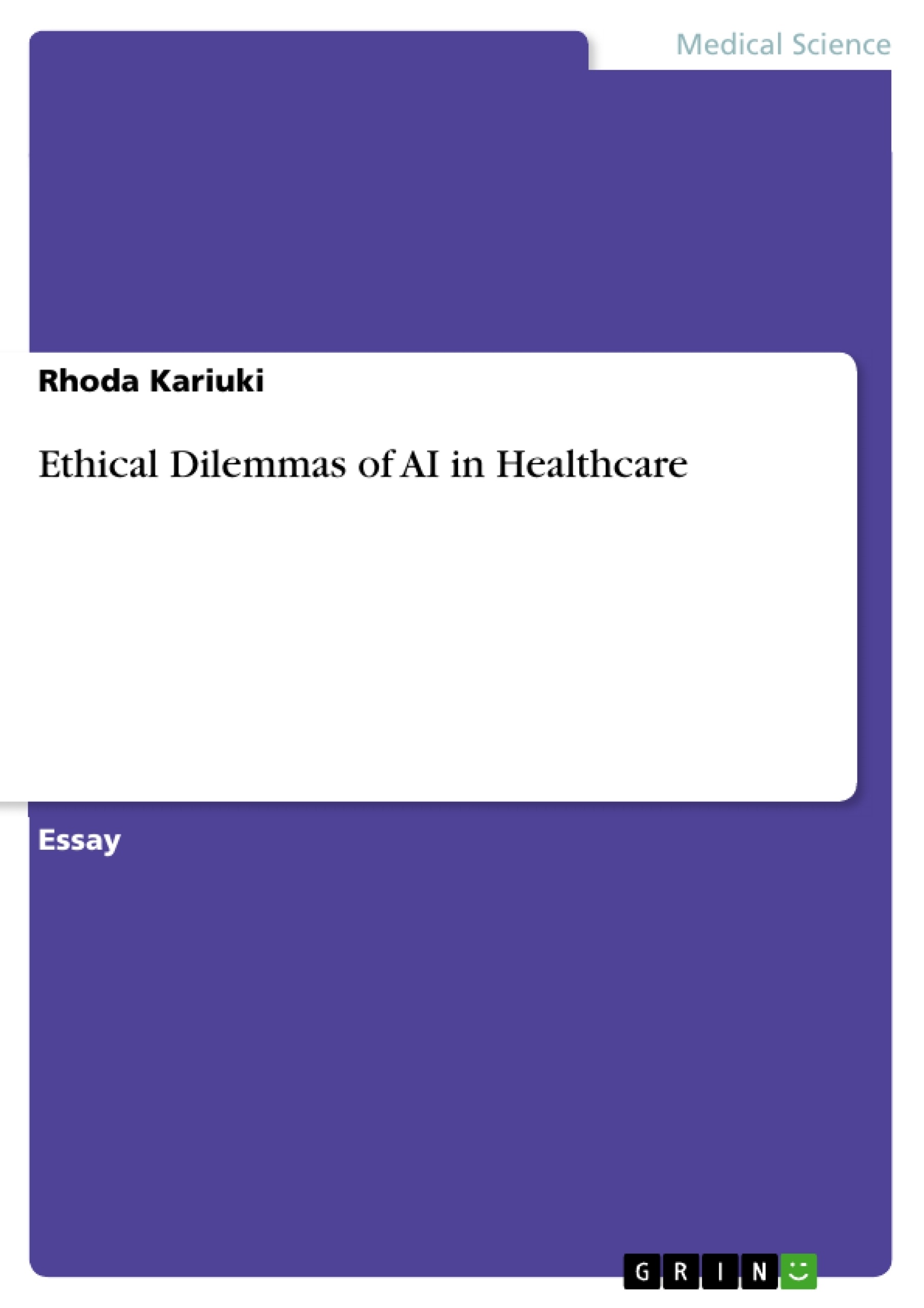In a world fueled by technological advancements, the intersection of artificial intelligence (AI) and healthcare stands as a beacon of promise and concern. Picture this: a patient walks into a clinic, apprehensive about symptoms that defy easy diagnosis. Amidst the uncertainty, AI steps in, deciphering complex patterns and unraveling the mystery behind the symptoms. This real-world scenario illustrates the transformative potential of AI in healthcare—a tool not only for accurate diagnoses but also for unlocking previously inaccessible realms of medical knowledge. The integration of AI into healthcare systems has thrust the medical field into a new era, promising unparalleled advancements in diagnostics and treatment. This paper recognizes the rapid development of AI in healthcare and delves into the ethical implications that accompany this transformative journey. While AI holds the potential to revolutionize medical practices, it concurrently raises critical ethical concerns, particularly in the realms of patient autonomy, algorithmic bias, and data privacy. As we navigate this frontier of innovation, it becomes imperative to critically examine the ethical dimensions surrounding the application of AI in healthcare.
- Quote paper
- Rhoda Kariuki (Author), 2024, Ethical Dilemmas of AI in Healthcare, Munich, GRIN Verlag, https://www.hausarbeiten.de/document/1440737



